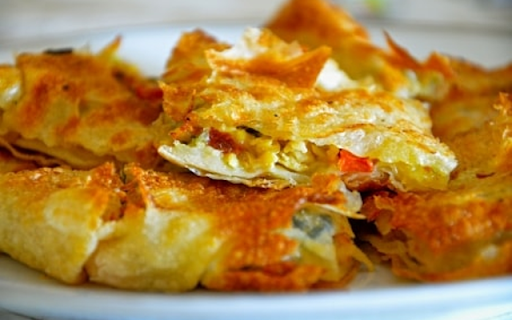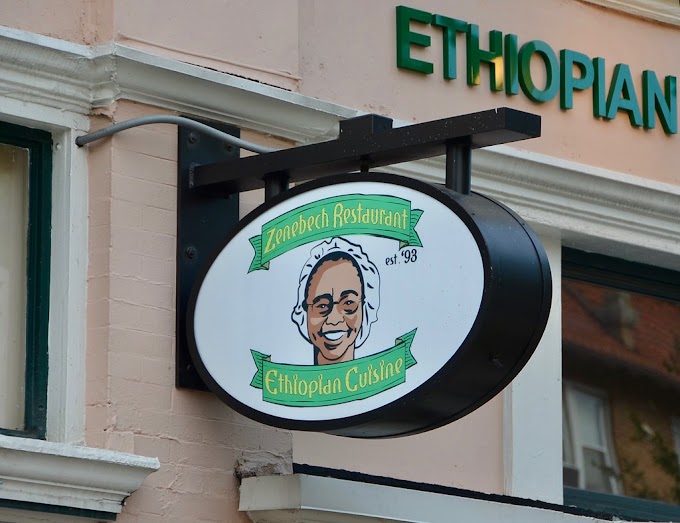How to make Zilzil Alecha Wot (Ethiopian Beef in Pepper Sauce)
Zilzil Alecha (Ethiopian Beef in
Pepper Sauce) dish made using beef boneless sirloin or top loin steak, red bell
peppers, jalapeno peppers, and garlic.
Ingredients needed to make Zilzil Alecha
Wot:
- Sunflower Oil
- Strip-cut Lean Beef
- Sliced Onions
- Kibbeh (Ethiopian spiced butter)
- Salt
- Turmeric
- Chopped Garlic and Ginger
- Sliced green pepper (Chili)
Steps:
Step 1: Turn on the stove.
Step 2: In a hot pan with a little
oil cook the beef strips. Also, add a little Kibbeh now and cook for
about 10 minutes.
Step 3: Next, lower the heat level and
continue to cook till you get the beef a little more crispy.
Step 4: Remove the pan from the stove
and bring a new pot to start the sauce.
Step 5: Next, use the oil from the
beef to start the sauce. This adds a great test.
Step 6: Then add the sliced onions
and stir often. Cover the lid and cook for 5 minutes till the color changes.
Step 7: Add a little bit of oil,
ginger and garlic, and turmeric powder. While stirring with lower heat cook for
5 minutes (don't forget to add a little bit of water now and then while stirring).
Step 8: Add the cooked beef, a little
salt, and some Kibbeh (it really depends on your taste) and mix well.
Step 9: Add a little cold water and
mix well. Then cook on low heat for 10 minutes.
Step 10: Add again a little bit of
water and cook for another 10-15 minutes.
Step 11: If the meat (beef) is tender
and the sauce has thickened you are ready to add the fresh chili. Then mix
well.
Step 12: There you have it; you have
made your first Zilzil Alicha Wot. Turn off the stove and get ready to serve
the food.
How do you serve Zilzil Alecha Wot?
 |
| Zilzil Alecha Wot Serving |
Zilzil Alecha wot can be eaten with cooked green vegetables and
a thick bread called "injera" bread is more common because it is
simpler to come by.
What is Berbere (Ethiopian spicy ingredient)?
Berbere is a spice blend made out of chili peppers, coriander, garlic, ginger, Ethiopian holy basil (besobela) seeds, korarima, rue, ajwain or radhuni, nigella, and fenugreek. It's an important element in Ethiopian and Eritrean cuisines.
Berbere can also refer to plants and spices that aren't well-known outside of Africa. Korarima (Aframomum corrorima) and long pepper, for example, are both cultivated and wild plants that thrive in Ethiopia.
What can I use instead of Berbere?
As a replacement, cayenne pepper is sometimes employed. It's commonly seen in stews and soups. If you can't find it at local grocery shop or specialized store, it's fairly simple to manufacture your own.
What does Berbere taste like?
Berbere is a spicy chili combination with a rich taste that isn't overly hot. Berbere is mellowed by sweet, lemony notes, while it isn't precisely light. Berbere has no uniform flavor characteristic since it comprises several components, each with its own distinct flavor and scent.
What is Niter Kibbeh?
Niter kibbeh, or niter qibe, is a seasoned, clarified butter used in Ethiopian and Eritrean cuisine. It is also known as tesmi (in Tigrinya). It's made in the same way as ghee, but before filtering, it's boiled with spices such besobela (Ethiopian sacred basil), koseret, fenugreek, cumin, coriander, turmeric, Ethiopian cardamom (korarima), cinnamon, or nutmeg, giving it a unique, spicy scent. Yeqimem zeyet is the variant that uses vegetable oil instead of butter.
What can I substitute for Niter kibbeh?
Niter kibbeh (spice-infused clarified butter) is a common cooking medium in Ethiopian cuisine that gives meals an unrivaled taste. If you don't have time to produce niter kibbeh, you may replace plain butter or oil in Ethiopian dishes, but something unique will be lacking.
What makes Ethiopian cousins special?
Did you realize that Ethiopian cuisine has long included vegetarian dishes? Ethiopian cooking culture has long used a variety of rich and colorful vegetables, fruits, beans, and pulses as the main components in many of their exquisite vegan-friendly recipes. Veganism has been fashionable in the West in recent years, but Ethiopians have long enjoyed vegan foods and the health benefits of a plant-based diet.
Ethiopians aren't afraid to use a lot of spices. Berbere, an Ethiopian spice blend including up to 16 constituent parts such as chili powder, fenugreek, ginger, garlic, cardamom, and cinnamon, is one of the most popular accompaniments.
Another advantage of eating Ethiopian food is that injera is made from teff, the world's tiniest grain, which Ethiopians have grown for millennia and are obsessed with. It is increasingly being referred to as a "super grain" in the United States and Europe, alongside quinoa and spelt, because it is high in protein and calcium and gluten-free.
All of the above will make your taste buds perform somersaults while also being beneficial to your health. The majority of Ethiopian recipes are high in nutrients and low in fat.














0 Comments